Buy Before You Sell Programs: What You Need to Know
Have you seen the ads for the buy before you sell programs highlighting the ease of selling before you buy? This concept is different from just buying a home first and then putting your house on the market in the traditional manner. That is an option that has pros and cons, but this information is about companies that offer programs designed for individuals who want the benefit of buying before they sell, but need help to do so.
Here is information about the “Buy Before You Sell” programs. These programs became very popular when the market was really hot, and sellers would not consider offers where the buyer had to sell a home first. The program allowed buyers of their next home to make cash offers or make offers that were not contingent on selling their current home first.
Not only did that allow the buyer’s offer to be more attractive, but these programs also remove a lot of the stress and pressure from the buying and selling process.
Now that we are in a market where transactions have been sluggish, this program can help sellers who want to make their move without the worry of selling first. So, in a hot market or a slower market, these programs still offer an attractive solution to homeowners.
Sounds great, right? Well, like most things in real estate, there are pros and cons. There’s no one-size-fits-all answer, but here are a few key factors to help you decide which option is better for you. Let’s break it down.
The Common Dilemma
You’ve found the perfect home—but your money is tied up in your current house. In Texas, home equity laws make it challenging to access your equity.
Here's what you should know about home equity loans in Texas:
- Owner-Occupancy Requirement: Your home equity loan must be on your primary residence.
- 12-Month Rule: You generally can’t take out another equity loan for 12 months after closing one.
- Intent to Occupy: You must state your intention to occupy the property as your primary residence when applying for this type of loan, so using the proceeds to buy another house immediately would be a problem.
So, what do you do when you can’t tap your equity in time? That’s where “Buy Before You Sell” programs come in.
If you find your dream home before your current house sells, the temptation to buy first can be strong. After all, who wants to risk missing out? But there are a few things to keep in mind before diving in.
How These Programs Work
Companies like HomeLight, Homeward, Offerpad, and UpEquity offer innovative solutions.
Here's a simplified version of how these programs typically operate:
1. They Buy the New Home for You (or Help You Buy It in Cash)
You get to make a non-contingent offer on your new home—which makes you more competitive in a hot market.
2. You Move In
Once the new home is secured, you move in, giving you flexibility and reducing pressure to sell your current home in a hurry.
3. Depending on the Program, They Buy Your Home at a Discount, or Help Sell Your Current Home, Possibly with the Realtor of Your Choice.
They will either buy your home or help you list your old home, often with marketing and support from the program provider (some require you to use their service) or the Realtor of your choice. Once it sells, the proceeds are used to finalize the purchase of your new home or to pay off the company’s fronted cost.
Pros
✅ Avoid selling under pressure
✅ Make competitive, non-contingent offers
✅ More time to move and prepare your current home for sale
✅ Flexibility and less stress
Cons
⚠️ Extra fees or rent-back agreements may apply
⚠️ Not all homes or buyers qualify
⚠️ You still need to qualify for two mortgages in some cases
⚠️ Program structures vary—read the fine print!
⚠️ The programs usually offer less than market value
⚠️ The programs usually have harsh penalties for not selling within a specific time frame
⚠️ You now have a “partner” in your sale and may lose decision making ability
⚠️ They may dictate price, service providers, lenders, who you can hire as a Realtor
I know there are more pros than cons listed, but depending on the situation, the pros can outweigh the cons.
Buy Before You Sell Programs: Full Breakdown
Please keep in mind that the market changes fast, and so do these programs. Call me for updates on the latest program offerings if you decide to consider one of these programs.
1. HomeLight Trade-In
- How It Works
- HomeLight gives you a guaranteed cash offer on your current home, then buys it a few days before your new home closes
- You make a non-contingent offer on your new home and move in once it closes.
- Fees & Timing
- A trade-in fee (~3% of sale price in addition to the other fees typically paid by a seller; 1% if using HomeLight’s lender), and an additional 0.5% for every 30-days the home has not sold.
- Pros
- Unlock full equity without listing.
- Control move-in timing.
- Cons
- Additional holding costs may apply.
- Need to qualify for two mortgages when closing new home.
- The offer for the home if they have to buy it is usually lower than market value.
2. Homeward
- How It Works
- Two-step purchase: Homeward buys your next home with cash, then once your current home sells, you “buy back” the new home
- Unlocks equity immediately (~84–89% of your home’s market value upfront)
- Fees
- 3.5% due at closing (covering services and holding costs).
- 6% commission split between Homeward and agent, plus carrying costs
- Pros
- No need for a sale contingency.
- Sell on your terms for full market price.
- Cons
- Carrying and commission fees can add up.
- You must qualify for your long-term mortgage to buy back.
4. UpEquity
- How It Works
- With their Trade Up program, UpEquity makes you a guaranteed offer on your existing home so you can buy your next home without a contingency
- Pros
- Eliminates sale contingency.
- Access to full-home equity upfront.
- Cons
- Program fees and mortgage qualification apply similarly to others.
5. Opendoor
- How It Works
- As an iBuyer, Opendoor gives a cash offer within 24 hrs based on data + video walkthrough
- In some markets, you can buy your new home through Opendoor and sell your current home to them in synchronized closings .
- Fees & Risks
- Typically a ~5% service fee (comparable to agent commissions).
- FTC found sellers often net less on average than with traditional listings.
- Pros
- Fast, convenient—close in 14–60 days.
- Cons
- Discount built into offer means you’ll likely net less than full-market sales.
- FTC settlements highlight potential undervaluation.
3. Offerpad
- How It Works
- Submit home info online, get a cash offer within minutes, and pick your closing date (up to ~60 days).
- May stay in home for up to 3 days post-close; free local move included.
- Fees
- Service fee + closing costs (~1–3%).
- Pros
- Instant cash simplicity.
- No showings or staging.
- Cons
- Initial offer can be renegotiated lower after inspection.
- Offers typically include a 5% iBuyer-style discount
Final Thoughts:
“Buy Before You Sell” programs can be a game changer—but only if they fit your financial situation and goals.
Review the contracts associated with these programs very carefully and be aware of unintended consequences. For example, it may be great to buy your new home without having to worry about selling your house first, but you may just be pushing that worry off until later, with the added timelines and less flexibility from the "buy before you sell" provider.
These are contracts full of jargon and legal terms. Be sure to review them with a real estate professional. Real estate agents cannot provide legal advice, so always seek the advice of a real estate lawyer if you have legal questions regarding the contract.
The buy before you sell providers and iBuyer ( a company that buys your house outright, usually at a discount) companies do provide a great service, but keep in mind, there are many options to choose from and of course other ways to buy a home before your sell or get cash offers on your property if you need to sell fast.
I can help you compare options, understand what each program offers, and decide what’s right for you.
Deciding whether to buy or sell first depends on your personal situation and the current market. Weigh the pros and cons, consider your financial flexibility, and think about how much risk you're comfortable taking on. With a clear understanding of your options, you can make a decision that fits your needs and leads to a smooth move into your next home.
Need help deciding?
Let's talk about your unique situation. You give me the details, and I'll make my best recommendation.




